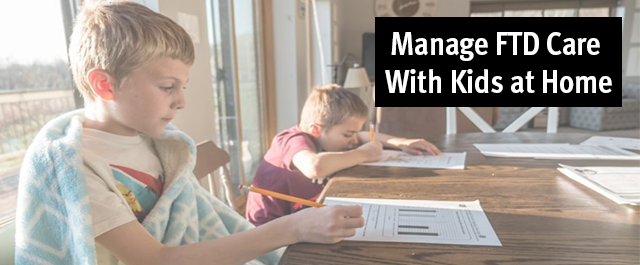PRESS & NEWS
How to Manage FTD Care While Kids are Home During COVID-19 – Spring 2020

The stress put on families when a parent is diagnosed with frontotemporal degeneration (FTD) and there are children at home is significant.
The stress put on families when a parent is diagnosed with frontotemporal degeneration (FTD) and there are children at home is significant. Add to that the COVID-19 pandemic forcing schools and childcare facilities to close in most states, and families now find themselves adjusting to new childcare arrangements while trying to help their children continue their education and attend school online.
To help families better manage the realities of providing FTD care while their kids and teens are at home, the Association for Frontotemporal Degeneration (AFTD) has compiled the following suggestions:
For more information to help children cope with an FTD diagnosis of a family member, the AFTD has a separate website AFTD Kids and Teens. There is a section targeted to helping kids ages 4 through 11, and one for teens, about age 12 and older.
Together we can find a cure for ftd
The FTD Disorders Registry is a powerful tool in the movement to create therapies and find a cure. Together we can help change the course of the disease and put an end to FTD.
Your privacy is important! We promise to protect it. We will not share your contact information.



